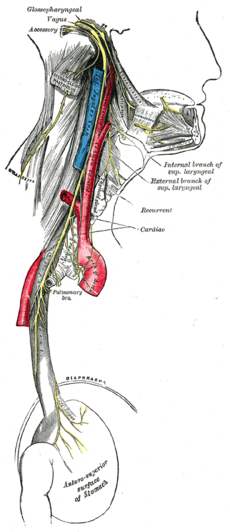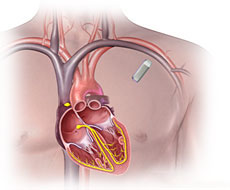Vasovagal Syncope

Vasovagal syncope is the most common type of fainting. There are a number of different syncope syndromes which all fall under the umbrella of vasovagal syncope. The common element among these conditions is the central mechanism leading to loss of consciousness. The differences among them are in the factors which trigger this mechanism.
Causes/Triggers
Fainting usually happens when your blood pressure drops suddenly, causing a decrease in blood flow to your brain. This is more common in older people. Some causes of fainting include:
• Prolonged standing or upright sitting
• Heat or dehydration
• Emotional distress
• Standing up too quickly
• Nausea
• Swallowing ('swallowing syncope')
• Coughing ('coughing syncope')
• Urination ('micturition syncope') or defecation ('defecation syncope')
• Abdominal straining
• Nerve malfunctions
• High Altitudes
• Hyperthermia
• Hunger
• Intense laughter
• Certain drugs
• Pressure on certain part of throat, sinus
Features
People with vasovagal syncope typically have recurrent episodes, usually when exposed to a specific trigger. The initial episode often occurs when the person is a teenager, then recurs in clusters throughout his or her life. Prior to losing consciousness, the individual frequently experiences prodromal symptoms such as lightheadedness, nausea, sweating, ringing in the ears, uncomfortable feeling in the heart, weakness and visual disturbances.
These last for at least a few seconds before consciousness is lost, which typically happens when the person is sitting up or standing. When they pass out, they fall down; and when in this position, effective blood flow to the brain is immediately restored, allowing the person to wake up. The autonomic nervous system's physiologic state leading to loss of consciousness may persist for several minutes.
Diagnosis

In addition to the mechanism described above, a number of other medical conditions may cause syncope. Making the correct diagnosis for loss of consciousness is one of the most difficult challenges that a physician can face. The core of the diagnosis of vasovagal syncope rests upon a clear description by the patient of a typical pattern of triggers, symptoms, and time course. Also is pertinent to differentiate lightheadedness, vertigo and hypoglycemia as other causes In patients with recurrent syncope, diagnostic accuracy can often be improved with one of the following diagnostic tests:
• A tilt table test
• Implantation of an insertable loop recorder
• A Holter monitor or event monitor
• An echocardiogram
• An electrophysiology study
Prognosis
Vasovagal syncope is rarely life-threatening in itself, but may be associated with injury from falling.
Treatment
Treatment for vasovagal syncope focuses on avoidance of triggers, restoring blood flow to the brain during an impending episode, and measures that interrupt or prevent the pathophysiologic mechanism described above.
The cornerstone of treatment is avoidance of triggers known to cause syncope in that person. Discontinuation of medications known to lower blood pressure may be helpful, but stopping antihypertensive drugs can also be dangerous. This process should be managed by an expert.
Patients should be educated on how to respond to further episodes of syncope, especially if they experience prodromal warning signs: They should lie down and raise their legs; or at least lower their head to increase blood flow to the brain. If the individual has lost consciousness, he or she should be laid down with his or her head turned to the side. Tight clothing should be loosened. If the inciting factor is known, it should be removed if possible (for instance, the cause of pain). Wearing graded compression stockings may be helpful.
There are certain orthostatic training exercises which have been proven to improve symptoms in people with recurrent vasovagal syncope.
Certain medications may be helpful, but are rarely effective by themselves.
Acknowledgements
Heart Rhythm Specialists of South Florida gives special thanks to the National Library of Medicine, Wikipedia and the National Heart Lung and Blood Institute whose Web sites aided in the research of the patient educational material provided above.






